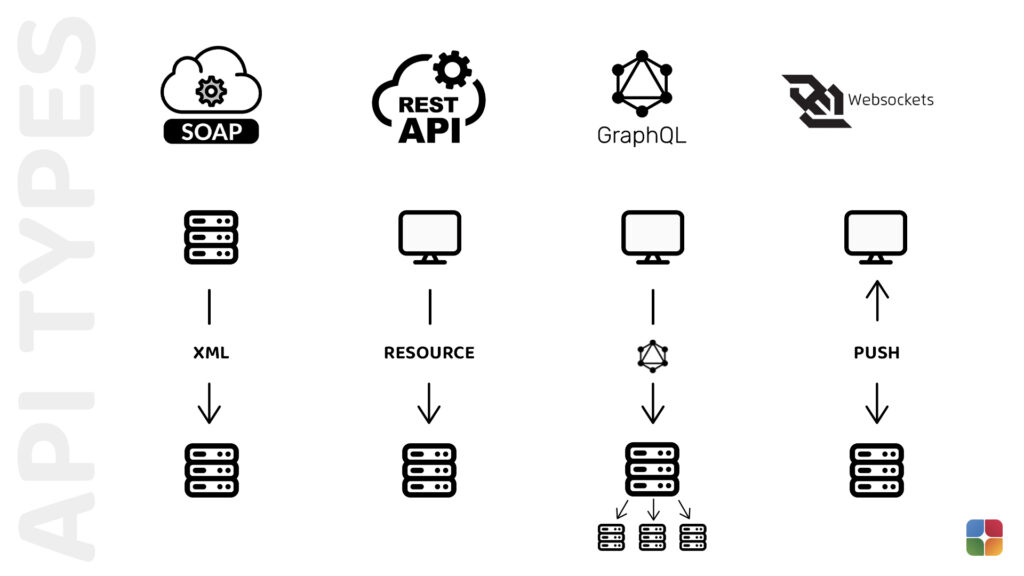The Growing Role of APIs in Digital Transformation

Digital transformation, the process of leveraging technology to radically improve business performance, has become a top priority for organizations across all industries. At the heart of this transformation are Application Programming Interfaces (APIs), which serve as the building blocks that enable software applications to communicate and share data with each other.
APIs play a pivotal role in digital transformation by facilitating integration between disparate systems, driving innovation, and enhancing the scalability and flexibility of digital solutions. They empower businesses to quickly develop new products and services, improve customer experiences, and streamline operations. As companies increasingly rely on digital technologies to stay competitive, understanding and leveraging the power of APIs has become essential.
Understanding APIs
Application Programming Interfaces (APIs) are important tools in modern software development that allow different software applications to communicate with each other. An API sets the rules and protocols for building and interacting with software applications. This way, different systems can share data and functionalities without needing to know how the other system works inside.
An API acts as a bridge between different software systems. It allows developers to use predefined functions to interact with other software. For example, when you use a mobile app to check the weather, the app connects to a remote server through an API. The server processes the request, retrieves the weather data, and sends it back to the app.
APIs come in different types, each with specific uses:
- REST (Representational State Transfer) APIs: These are the most common and work with web services using HTTP protocols. They are simple, scalable, and stateless, making them ideal for web applications.
- SOAP (Simple Object Access Protocol) APIs: These use XML messaging and are known for their strong security features. They are often used in enterprise environments.
- GraphQL APIs: These allow clients to request exactly the data they need, improving efficiency by reducing the amount of data transferred.
- WebSocket APIs: These enable real-time, two-way communication between clients and servers, ideal for applications like chat apps and live updates.

APIs are used widely in the tech world. Some common examples include:
- Google Maps API: This allows developers to include Google Maps in their applications, offering location services and geospatial data.
- Twitter API: This enables developers to interact with Twitter data, such as posting tweets and retrieving user information.
- Stripe API: This provides tools for processing online payments, which businesses can integrate into their websites and apps.
- Firebase API: This offers backend services for mobile and web applications, including authentication and real-time databases.
Benefits of APIs in Digital Transformation
APIs offer many benefits for digital transformation. They help businesses to integrate systems, innovate quickly, scale operations, and improve customer experiences. Here are some key benefits of using APIs in digital transformation:

Integration and Interoperability
APIs make it easier to connect different systems and platforms. They allow software applications to share data and functionalities. For example, a business can use APIs to connect its customer relationship management (CRM) system with its email marketing tool. This integration helps in creating a seamless workflow and improves efficiency. According to a study by MuleSoft, 83% of IT decision-makers say that integration challenges slow down their digital transformation efforts. APIs can solve these challenges by enabling smooth interoperability between systems.
Innovation and Speed to Market
APIs enable businesses to innovate faster by building on existing technologies. Instead of creating everything from scratch, developers can use APIs to add new features and services quickly. This approach reduces development time and speeds up the launch of new products. For instance, a company can use payment APIs like Stripe to add secure payment processing to its e-commerce site in a short time. This rapid innovation helps businesses stay competitive in the market.
Scalability and Flexibility
APIs provide the flexibility to scale operations as the business grows. They allow businesses to add or remove functionalities as needed without significant changes to the existing system. For example, a company can use cloud APIs to scale its storage and computing power based on demand. This scalability ensures that the business can handle increased loads and continue to perform well.
APIs in Different Industries
APIs are used across various industries to improve operations, enhance customer experiences, and drive innovation. In the finance and banking industry, APIs are transforming how services are delivered. Open banking APIs allow third-party developers to build applications and services around financial institutions. For example, customers can link their bank accounts with budgeting apps to better manage their finances. APIs also enable real-time payment processing and fraud detection, improving the security and efficiency of financial transactions. According to a study by PwC, 88% of financial institutions believe that APIs will enhance customer engagement and experience.
APIs also play a vital role in healthcare by improving data interoperability and patient care. They enable the integration of electronic health records (EHRs) with other systems, such as laboratory information systems and pharmacy management systems. This integration allows healthcare providers to have a comprehensive view of a patient’s medical history, leading to better diagnosis and treatment. APIs also support telemedicine services by connecting patients with doctors through video calls and remote monitoring. According to a report by HIMSS, 67% of healthcare organizations use APIs to enhance patient care and operational efficiency.
In the e-commerce and retail industry, APIs are used to create seamless shopping experiences and optimize operations. For example, inventory management APIs help retailers keep track of stock levels in real-time, preventing overstocking or stockouts. Payment APIs, such as those from PayPal or Stripe, enable secure online transactions. APIs also allow for the integration of recommendation engines that provide personalized product suggestions to customers. A study by BigCommerce shows that retailers using APIs to integrate various services report a 30% increase in sales.
Additionally, APIs are essential in logistics and supply chain management for real-time tracking and optimization. They enable the integration of various systems, such as warehouse management systems, transportation management systems, and fleet tracking systems. This integration allows companies to monitor shipments, track inventory, and optimize delivery routes. For example, a logistics company can use APIs to provide customers with real-time updates on the status of their deliveries. According to Gartner, companies that use APIs for supply chain integration see a 20% improvement in operational efficiency.
Challenges and Considerations
While APIs offer many benefits, they also come with challenges that organizations need to address to ensure successful implementation and operation. Understanding these challenges and planning accordingly can help businesses make the most of their API strategies.
One of the primary challenges with APIs is ensuring security. APIs often expose endpoints that can be vulnerable to attacks, such as data breaches, unauthorized access, and denial of service (DoS) attacks. It is crucial to implement strong security measures, such as authentication, authorization, encryption, and rate limiting. According to a report by Salt Security, 91% of organizations experienced an API security incident in 2020, highlighting the need for robust security practices.
APIs must comply with various industry standards and regulations, particularly in sectors like finance and healthcare. Ensuring compliance can be challenging and requires thorough understanding and implementation of relevant standards. For example, APIs in the financial industry must comply with regulations like PSD2 in Europe, which mandates strong customer authentication and secure communication. Non-compliance can result in legal penalties and damage to the organization’s reputation.
Integrating APIs with existing systems can also be challenging, especially if those systems are legacy or have complex architectures. Ensuring seamless integration requires careful planning and sometimes additional middleware to bridge gaps between different technologies. According to a survey by TechRepublic, 33% of respondents indicated that integration with existing systems was a significant barrier when adopting APIs.
Conclusion
APIs are powerful tools that play a crucial role in digital transformation by enabling seamless integration, fostering innovation, and enhancing scalability. They provide businesses with the flexibility to rapidly develop and deploy new applications, improve customer experiences, and streamline operations across various industries, including finance, healthcare, e-commerce, and logistics.

However, leveraging APIs effectively requires understanding and addressing several challenges. Security concerns, management and monitoring complexities, compliance requirements, customization constraints, dependence on platform providers, and integration limitations are all significant considerations that businesses must navigate to ensure successful API implementation.
By adopting best practices for API security, utilizing robust management and monitoring tools, ensuring compliance with industry standards, and carefully evaluating API capabilities and limitations, organizations can maximize the benefits of APIs. Proper planning and strategic use of APIs enable businesses to overcome potential hurdles and drive their digital transformation initiatives forward.